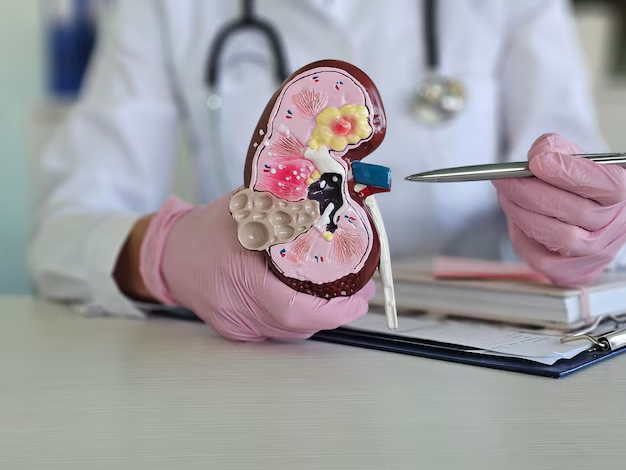Can Kidney Stones Lead to Incontinence? What You Need to Know
Imagine enduring the sharp, persistent pain that a kidney stone can bring, only to be met with another unwelcome surprise: unexpected episodes of incontinence. Can kidney stones actually cause incontinence? To many, this link isn't immediately obvious, but understanding it can provide insights into effective management and relief for affected individuals.
Understanding Kidney Stones and Incontinence
Kidney stones are hard mineral deposits that form inside your kidneys, and they can vary greatly in size and shape. When a kidney stone moves into the ureter — the tube connecting the kidneys to the bladder — it can cause severe pain, frequent urination, and sometimes blood in the urine. But can they lead to urinary incontinence?
Yes, kidney stones can sometimes cause incontinence as they irritate the bladder or block the ureter. This irritation can lead to an overactive bladder or contribute to a condition known as "urge incontinence," where there is a sudden and intense urge to urinate, potentially leading to unintended leakage.
However, not everyone with kidney stones will experience incontinence. The severity and location of the stone, as well as individual variations in anatomy and health, play a role in determining specific symptoms.
Managing Kidney Stones and Exploring Solutions
If you're experiencing incontinence due to kidney stones, it is crucial to seek medical advice. A healthcare provider can offer strategies to help manage both the kidney stones and their impact on bladder function. Possible treatments include:
- Medication to alleviate symptoms or help pass the stone
- Lifestyle changes, such as increased water intake and dietary adjustments
- Medical procedures like shock wave lithotripsy or surgical removal for larger stones
Addressing these health issues isn't just about physical wellness, but financial well-being too. Treatments can be expensive, and dealing with unexpected medical bills can put a strain on your finances. Fortunately, there are several financial assistance options and educational resources available that can alleviate stress and provide support during such times.
Financial and Educational Assistance Resources
For those grappling with medical expenses or needing support in taking control of financial matters, the following options can be incredibly beneficial:
- Government Aid Programs: Aid programs such as Medicaid or state-run assistance can help cover some medical costs.
- Financial Assistance Programs: Hospitals and clinics often have financial counselors who can guide you through payment plans or charity care options.
- Debt Relief Services: Organizations specialize in negotiating with creditors or consolidating debt to make out-of-pocket expenses more manageable.
- Credit Counseling: Professional credit counseling services can provide personalized advice to help manage expenses and improve financial literacy.
- Scholarships and Grants for Education: Educational grants or scholarships can be a valuable means to improve your skills and potentially increase your earning ability.
Financial Support Options
- 💰 Medicaid: Provides health coverage to eligible low-income individuals and families.
- 🏥 Hospital Charity Programs: Offer financial counseling and reduced-cost services.
- 🏦 Debt Consolidation: Combine multiple debts into one manageable payment.
- 📈 Credit Counseling Services: Expert advice on managing finances and improving credit scores.
- 🎓 Educational Grants: Opportunities to further education without increasing financial burden.
Taking proactive steps by seeking medical advice, utilizing financial and educational resources, and understanding your options can empower you to manage kidney stones and their effects more effectively, while also bolstering your financial and personal well-being for the future.

Related Topics
- a Patient You Are Caring For Uses Incontinence Briefs
- Are Incontinence Products Tax Deductible
- Are Incontinence Supplies Covered By Medicare
- Are Incontinence Supplies Tax Deductible
- Can a Bladder Infection Cause Urinary Incontinence
- Can a Urinary Tract Infection Cause Incontinence
- Can a Uti Cause Incontinence
- Can Constipation Cause Incontinence
- Can Constipation Cause Urinary Incontinence
- Can Dairy Cause Incontinence
